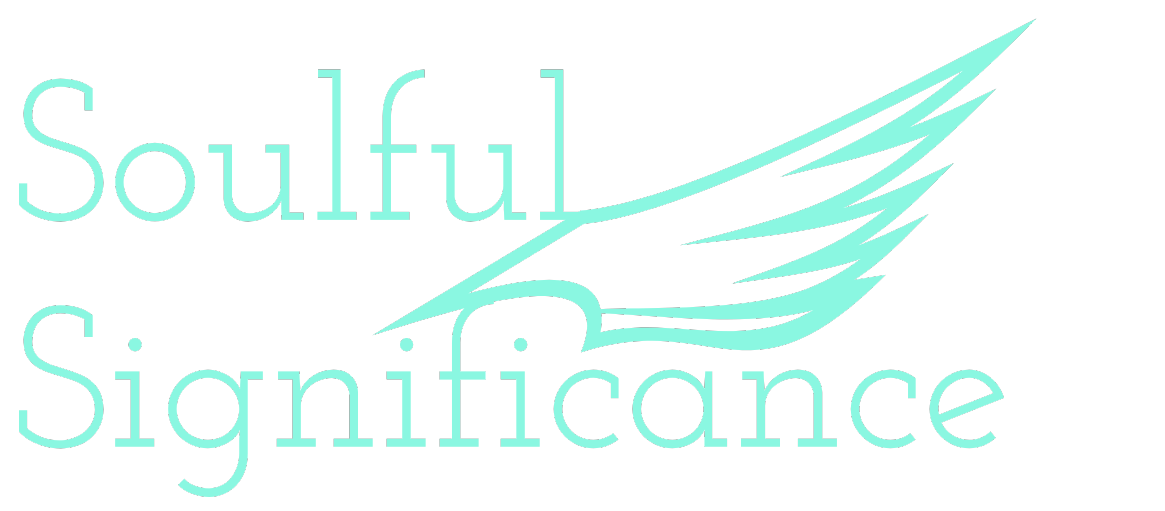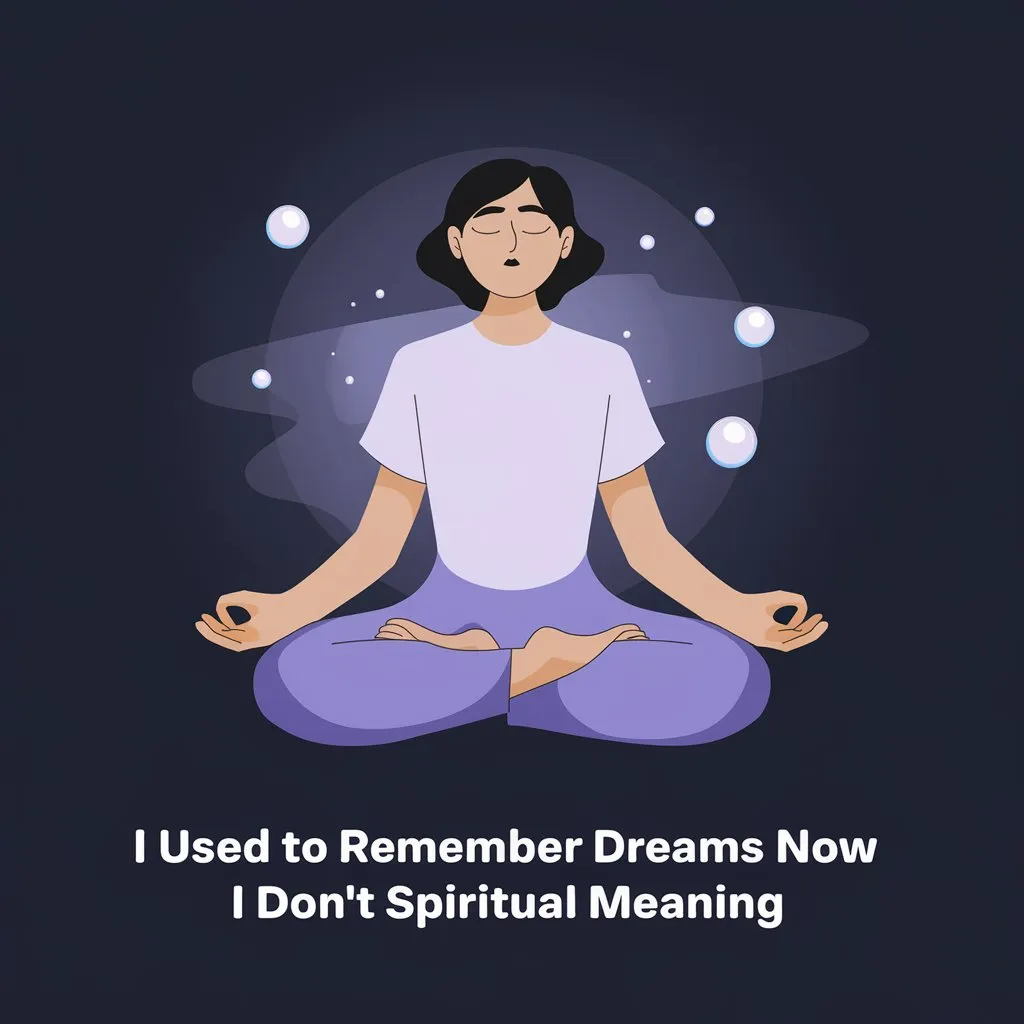I Used to Remember Dreams Now I Don’t Spiritual Meaning
You used to wake up with vivid memories of your dreams, but now they’re nothing more than a hazy fog. It’s as if your subconscious mind has stopped sharing its secrets with you.
Forgetting dreams can be a disconcerting experience, especially when you sense that they hold important messages about your spiritual journey.
But what does it really mean when you can’t recall your dreams anymore? Is it a sign of disconnection from your inner world, or something more?
As you explore the reasons behind your dream recall loss, you may uncover a deeper truth about your spiritual growth and inner wisdom.
In a Nutshell
- Forgetting dreams may be an invitation to explore other aspects of the inner world, such as through dream journaling or reflection.
- Spiritual awakening can bring significant shifts in dream life, including vivid, symbolic dreams connected to spiritual journey.
- Chronic stress, anxiety, and certain medications can suppress dreams, making them harder to recall and override the brain’s ability to enter REM sleep.
- Forgetting dreams can be a sign of personal growth, shifting focus from subconscious to conscious as the mind integrates new insights.
- Neglecting sleep needs and poor sleep quality can impact dream recall, highlighting the importance of prioritizing rest and creating a sleep-conducive environment.

What Causes Dream Recall Loss
As you wake up, you may find yourself struggling to recall the vivid dreams you’d just hours before. This can be frustrating, especially if you’re someone who values their dreams as a source of insight or creative inspiration.
One possible explanation for this loss of dream recall is dream deprivation, which occurs when you’re not getting enough sleep or your sleep is disrupted. Poor sleep quality can make it harder for you to enter the REM stage of sleep, where most dreams occur.
Additionally, factors such as stress, anxiety, and certain medications can also impact your ability to recall dreams.
As you navigate your waking life, it’s easy to overlook the importance of self-care and prioritize rest. However, neglecting your sleep needs can have a ripple effect, impacting not just your dream recall but also your overall well-being.
It’s essential to acknowledge that your sleep quality is intertwined with your dream recall. By making conscious choices to prioritize rest and create a sleep-conducive environment, you may find that your dream recall improves, and you’re better able to tap into the wisdom of your subconscious mind.
Spiritual Significance of Forgetting Dreams
In the stillness of the morning, when the veil between the subconscious and conscious mind is at its thinnest, you may find yourself grappling with the fleeting nature of your dreams.
It’s as if your mind is trying to hold onto something, but it keeps slipping away. This feeling can be particularly disorienting if you’re someone who used to remember your dreams vividly.
The loss of dream recall can leave you wondering if you’re losing touch with your subconscious or if it’s just a sign of spiritual amnesia.
As you navigate this experience, consider that forgetting your dreams might be an invitation to explore other aspects of your inner world.
Dream journaling, for instance, can help you tap into your subconscious mind, even if you can’t recall specific dreams.
By writing down your thoughts, emotions, and insights, you may find that your dreams are still influencing your waking life, even if you can’t remember them.
This process can help you develop a deeper understanding of yourself and your spiritual journey.

Changes in Subconscious Awareness
Beneath the surface of your waking life, your subconscious awareness is constantly evolving.
This transformation can manifest in various ways, including changes in your ability to recall dreams. As you grow and develop, your subconscious mind is reorganizing its priorities and refining its filtering processes.
This evolution can lead to a shift away from remembering dreams, as your mind becomes more focused on integrating new experiences and insights into your waking life.
Subconscious exploration through practices like meditation and journaling can help you tap into this evolving awareness.
By cultivating mindful awareness, you can gain a deeper understanding of your subconscious mind’s changing landscape. This increased self-awareness allows you to recognize and appreciate the subtle shifts in your thoughts, emotions, and behaviors.
As you navigate these changes, remember that your subconscious mind is always working to support your growth and well-being.
Trust in its wisdom and continue to nurture your connection with it. By doing so, you’ll become more attuned to your inner world and better equipped to navigate life’s challenges with greater clarity and purpose.
Shifts in Brain Wave Patterns
Your subconscious mind’s evolution is closely linked to changes in brain wave patterns, influencing your ability to recall dreams.
As you’ve grown and developed spiritually, your brain wave patterns have likely shifted, impacting your capacity for dream recall. You may have noticed that you’re no longer entering the same deep sleep states that allowed you to tap into your subconscious mind and retrieve memories of your dreams.
This shift in brain wave patterns can manifest as brain fog, making it harder to access and process information, including memories of your dreams.
Your sleep quality may have also changed, with you experiencing lighter, more restless sleep. These changes can make it more challenging to recall dreams, as your brain isn’t entering the same deep relaxation states that facilitate dream recall.
By acknowledging these shifts in brain wave patterns and exploring ways to promote deeper sleep and relaxation, you can work to regain your ability to recall dreams and tap into your subconscious mind.
New Life Routines and Dreaming
As major life metamorphoses unfold alongside a shift in priorities, the rhythms of daily life can profoundly impact your dreaming patterns.
Your morning habits, for instance, can either foster or hinder your ability to recall dreams.
Developing a consistent sleep schedule can be vital in enhancing dream recall. By going to bed and waking up at the same time every day, you create a routine that trains your brain to enter the REM sleep stage, where most dreams occur, more efficiently.
When you’re in sync with your natural sleep-wake cycle, you’re more likely to wake up feeling refreshed and alert, which can help you remember your dreams.
Additionally, establishing a peaceful morning routine can also aid in dream recall. This can include activities like meditation, journaling, or simply savoring a quiet cup of coffee.
By cultivating a sense of calm and mindfulness in the morning, you create space for your subconscious to reveal its secrets.
Effects of Stress on Dreams
Stress can be a powerful dream disruptor, capable of fragmenting the very fabric of your subconscious mind.
It’s no wonder that chronic stress can suppress your dreams, making them harder to recall. When you’re under stress, your body’s fight-or-flight response is triggered, releasing stress hormones like cortisol and adrenaline into your system.
This stress response can override your brain’s ability to enter the REM sleep stage, where most dreams occur. As a result, your dreams may become less vivid, less memorable, or even non-existent.
This is known as dream suppression, a common phenomenon in people who experience chronic stress. When you’re stressed, your mind is preoccupied with the demands of the day, making it harder for your brain to relax and enter the dream state.
If you’re struggling to remember your dreams, it may be worth exploring stress-reducing techniques, such as meditation or deep breathing exercises, to help calm your mind and promote a more restful sleep.

Emotional State and Dream Recall
Emotional awareness can be a powerful gateway to accessing your dream world.
As you tune into your emotions and develop self-awareness, you may notice patterns in your emotional state that affect your dream recall. You might find that you remember dreams more vividly when you’re in a certain mood or when specific emotions are present.
Consider the following ways your emotional state might be influencing your dream recall:
- Emotional shifts: Have you experienced a significant change in your emotional state recently? This could be due to a life changeover, a new relationship, or a personal growth spurt. These emotional shifts can impact your dream recall.
- Mood swings: If you’re prone to mood swings, you might notice that you remember dreams more frequently during certain emotional periods. For example, you might recall dreams more vividly when you’re feeling anxious or stressed.
- Emotional regulation: How you manage your emotions during the day can also impact your dream recall. If you’re someone who tends to suppress or deny your emotions, you might find that your dreams become more elusive.
Dreams and Spirituality Connection
The connection between dreams and spirituality is one that has fascinated you for centuries.
You’ve likely pondered the symbolic meanings behind your nighttime visions, seeking a deeper understanding of yourself and the universe.
This curiosity is natural, as dreams have long been considered a gateway to the spiritual domain.
By exploring your dreams through dream analysis, you can tap into your subconscious mind and uncover hidden insights about your spiritual connection.
As you excavate into dream analysis, you begin to recognize patterns and themes that reflect your spiritual journey.
You realize that your dreams aren’t just random firings of your brain, but rather a language that your spirit is using to communicate with you.
This understanding can lead to a profound sense of connection to the universe and a deeper appreciation for the mysteries of life.
By embracing your dreams as a spiritual tool, you can cultivate a stronger sense of inner guidance and wisdom.
This, in turn, can lead to a more authentic and meaningful spiritual connection.
Inner World Changes and Dreams
Many inner world changes can manifest in your dreams, often serving as a barometer for your spiritual growth and inner transformation.
As you navigate the complexities of your inner world, your dreams can offer valuable insights into your thoughts, emotions, and desires. By tuning into your dreams, you can gain a deeper understanding of yourself and your place in the world.
To tap into the wisdom of your dreams, consider the following practices:
- Dream journaling: Writing down your dreams as soon as you wake up can help you process and reflect on their symbolism and themes.
- Inner exploration: Take time to meditate or engage in quiet contemplation, allowing yourself to dive deeper into the emotions and sensations that arise in your dreams.
- Symbolic analysis: Look for recurring symbols or motifs in your dreams, and explore their personal significance in the context of your waking life.
Personal Growth and Forgotten Dreams
One of the most significant challenges in remembering dreams is the tendency to forget them shortly after waking.
As you navigate your inner world, you may notice that your dreams are becoming increasingly elusive. This can be a sign that you’re undergoing a period of personal growth, where your focus is shifting from the subconscious to the conscious.
Your mind is actively working to integrate new insights, and your dreams may be taking a backseat.
Through mindful reflection, you may discover that your inner evolution is the driving force behind your forgotten dreams.
As you grow and mature, your priorities and values may change, causing your subconscious to adapt. This transformation can lead to a decrease in dream recall, but it doesn’t mean that your subconscious has stopped working.
Instead, it may be busy processing new information and emotions, helping you to become a more aware and compassionate person.
Life Transitions and Dream Loss
Life passages often mark a turning point in your dream life, with major changes such as moving, starting a new job, or experiencing a substantial loss potentially leading to a decrease in dream recall.
You may find yourself wondering why you used to remember dreams vividly, but now they seem to fade away like childhood nostalgia.
As you navigate major life shifts, your brain may be preoccupied with adjusting to new circumstances, leaving less mental space for dream recall.
Some life passages that may contribute to dream loss include:
- Major life milestones: Getting married, having children, or switching careers can profoundly impact your dream life.
- Loss and grief: Experiencing a substantial loss can lead to changes in your sleep patterns and brain activity, affecting dream recall.
- Physical relocation: Moving to a new home or city can disrupt your routine and sleep habits, making it harder to remember dreams.
As you go through these passages, being gentle and understanding with yourself is vital.
Your dream life may evolve and change, just like other aspects of your life.
Spiritual Awakening and Dreams
As you undergo a spiritual awakening, you may notice significant shifts in your dream life.
This period of intense spiritual exploration can bring about a deeper understanding of yourself and the world around you. Your dreams may become more vivid, symbolic, and connected to your spiritual journey.
You might experience lucid dreaming, where you’re aware of your dreams and can even influence their narrative. This heightened state of awareness can transcend into your waking life, allowing you to tap into your Cosmic awareness.
In this state, you may find that your dreams are no longer just a reflection of your subconscious mind but a gateway to higher states of consciousness.
Your dreams can become a source of guidance, wisdom, and healing, helping you navigate your spiritual path. As you deepen your spiritual practice, you may find that your dreams become more insightful, offering you a glimpse into the mysteries of the universe.
This can be a truly transformative experience, allowing you to connect with something greater than yourself and find meaning and purpose in your life.
Loss of Intuition and Dreams
Your dreams and intuition have become valuable allies in your spiritual journey, guiding you through periods of growth and transformation.
But what happens when you start to lose touch with these inner guides? You may feel lost, disconnected, and uncertain about your path forward.
As you navigate this shift, it’s vital to acknowledge the possible reasons behind the loss of intuition and dreams.
Three potential factors warrant examination:
- Dream suppression: You may be unintentionally suppressing your dreams due to increased stress, anxiety, or a busy schedule.
- Intuition dimming: Your intuition may be dimming due to a lack of self-reflection, meditation, or connection with your inner self.
- Energetic blockages: You may be experiencing energetic blockages, such as emotional trauma or negative thought patterns, that are hindering your ability to tap into your intuition and dreams.
It’s imperative to recognize that this loss isn’t a permanent state.
By acknowledging the potential causes, you can begin to understand the underlying dynamics at play.
This awareness is the first step towards regaining your connection with your intuition and dreams.
Reclaiming Dream Recall Abilities
Reconnecting with the dream world requires a conscious effort to tap back into your subconscious mind.
By acknowledging the loss of your dream recall abilities, you’ve taken the first step towards reclaiming them. Now, it’s time to nurture this connection and strengthen your intuition.
One effective way to do this is through dream journaling.
As soon as you wake up, take a few minutes to write down any dreams you can recall, no matter how fragmented or insignificant they may seem. This practice helps you tune into your subconscious mind and trains your brain to remember your dreams more clearly.
In addition to dream journaling, incorporate morning reflections into your daily routine.
Take a few moments each morning to sit in stillness, breathe deeply, and reflect on your dreams from the previous night.
Ask yourself: What emotions did I experience during the dream? What symbols or themes emerged?
FAQs
Can Medications Affect Dream Recall and Spiritual Experiences?
You’re exploring the connection between medications, dream recall, and spiritual experiences. Certain meds can alter brain chemistry, affecting sleep patterns and potentially influencing your ability to recall dreams and tap into spiritual experiences within.
How Does Aging Impact Dream Recall in Spiritual Individuals?
As you age, you may notice a shift in dream recall, but by practicing mindfulness exercises, you’ll stay attuned to your soul’s evolution, and though recall may wane, spiritual connections remain, deepening your inner wisdom.
Can a Specific Diet Improve Dream Recall Abilities?
You explore a diet to enhance dream recall by keeping a food diary to track nutrient intake, and establish a consistent sleep schedule, helping you tune into your body’s rhythms and inner wisdom.
Do Certain Spiritual Practices Increase Dream Recall?
As you explore spiritual practices, you’ll find mindfulness meditation and lucid dreaming can heighten dream recall, allowing you to tap into your subconscious and gain deeper insights, fostering a stronger connection to your inner self.
Can Technology Use Before Bed Impact Spiritual Dreams?
You’re winding down before bed, but screen time’s impact on your spiritual dreams lingers. As you reassess your bedtime routine, consider how blue light and digital stimulation might be influencing your subconscious connection to the universe.

I’m Eliza Trinity, a spiritual guide and writer at SoulfulSignificance.com, where my mission is to illuminate the path of spiritual fulfillment through Christ’s teachings. With a Theology degree and a counseling background, I blend biblical wisdom with real-world insight to support those on their journey to discovering their soul’s significance.






